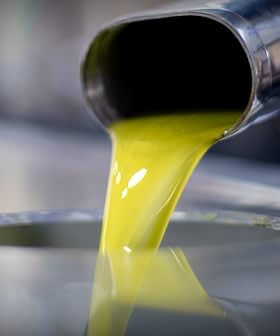Olive Oil Increasingly Common in Pet Foods
When consumed in the right amount, extra virgin olive oil has a range of benefits for both cats and dogs.
Commercial dog food brands are increasingly incorporating extra virgin olive oil as a key ingredient, with brands like Mediterranean Diet and Tuscan Natural leading the way. Extra virgin olive oil has numerous health benefits for pets, including preventing dry skin, cardiovascular disease, cancer, and diabetes, while also promoting brain and joint health.
With the health benefits of olive oil for pets becoming apparent, commercial dog food brands centering on the Mediterranean diet staple are more readily available than ever before.
Mediterranean Diet, Tuscan Natural and OlviPet, all of which are based in the United States, and United Kingdom-based Salter’s Dog Food are among the brands producing pet food with extra virgin olive oil as one of the main ingredients.
See Also:Health NewsThese emerging brands make it easier for consumers to feed their dogs the correct amounts of extra virgin olive oil. Consumed in the right quantities, extra virgin olive oil has a range of benefits for pets.
Previous studies have shown that extra virgin olive oil potentially prevents dry skin, cardiovascular disease, cancer, diabetes and obesity in dogs. It can also promote brain and joint health, and longevity.
According to Innovative Veterinary Care Journal, extra virgin olive oil is recommended above non-virgin olive oils because the former retains a higher nutrient as a result of being cold extracted.
Moreover, the journal noted extra virgin olive oil lowers low-density lipoprotein (HDL) levels that can cause a buildup of plaque in the arteries. Extra virgin olive oil also boosts high-density lipoprotein (LDL) levels, protecting dogs and other animals from oxidative stress and blood clotting disorders.
Furthermore, extra virgin olive oil adds an essential nutrient that the body cannot produce – dihomo-gamma linolenic acid – to the diet.
Innovative Veterinary Care Journal further reported that palm oil is at times added to extra virgin olive oil to cut costs, but warned against this due to the impact of palm oil production on forests and the habitats of endangered species.
However, dogs are not the only pets that can benefit from food supplemented with olive oil.
Cats can also benefit from moderate amounts of extra virgin olive oil, which assists in maintaining a healthy weight and lowering the risk of cardiovascular disease and diabetes. It is also helpful for preventing hairballs.









